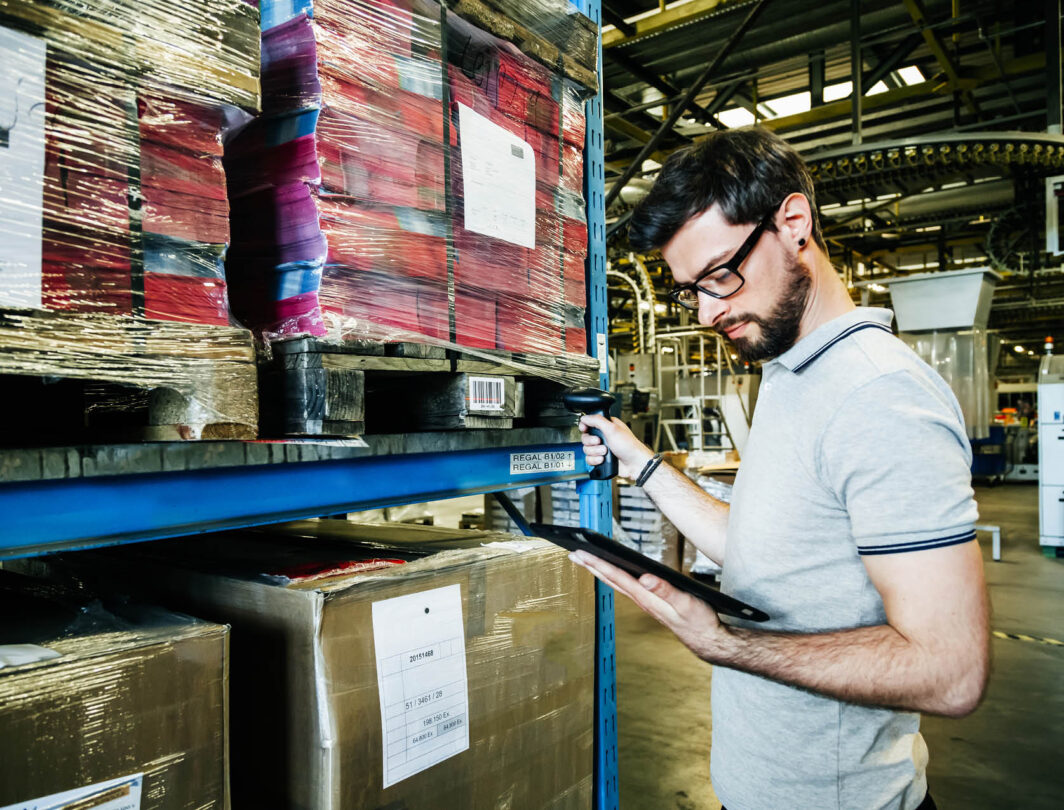Technology & Innovation
How blockchain traceability can improve supply chain management
Find out how blockchain traceability can improve how your supply chain functions and how the Internet of Things could make your operations more effective.

Is it time for your business to look at blockchain traceability?
As the UK prepares to leave the European Union (EU), many businesses have examined their supply chains and how they can withstand this and other major challenges. After all, good supply chain management is key to success and customer happiness.
At the moment, UK businesses can move products across EU Member State borders freely. But after 31 October 2019, this may change (depending on the final terms of Brexit), potentially meaning delays, tariffs and inspections will have to be dealt with.
Manufacturers often need global supply chains, which bring their own set of problems in identifying and tracking what is actually going into the product they release out to customers.
If a supply chain works across multiple organisations and countries, it can be difficult to chase individual events. Today, most company information will flow through a supply chain with little or no agreement when it comes to data taxonomy, with no uniform way of recording, storing and exchanging data.
Supply chain challenges can be particularly complex for food and drink businesses. For one thing, goods are perishable, meaning products often need to be consumed within days and weeks. There are also many variables to deal with, such as supplier issues, food safety standards and bad weather.
This means there is a level or risk and uncertainty, which in worst-case scenarios can result in public health challenges (in the food and drink industry) and product recalls (think how serious these can be for automotive manufacturers, for example).
Forward-thinking businesses look to technology to solve business problems. For supply chain management, should they be looking at blockchain?
Scale your business internationally
Want to trade internationally? We’re here to help you succeed with the latest technology, research and tips to expand your business.

How can blockchain support supply chain management?
Blockchain is a technology that takes the form of decentralised open-source ledgers that can record transactions in a verifiable and permanent way – providing a near real-time and indelible record that can be replicated among participants.
A blockchain is a database stored in multiple locations that can maintain increasing records (or blocks) which are timestamped and linked to previous blocks in a way that cannot be undone.
It’s a method of recording data – anything that needs recording and verified as happened. Once data has been recorded, it cannot be changed – only added to and updated on the entire network.
The blockchain has the potential to create a smarter and more secure supply chain, as products can be tracked through a clear and solid audit trail with near real-time visibility.
Businesses in all industries could track materials, determine where they arrived, who received and handled them, and how and when they were transported to a next stage.
Robert Sinfield, Vice President of Product for Sage Business Cloud X3, says: “On the visibility side, blockchain ERP systems could enable everyone involved to track the product’s journey from the manufacturing floor to the retailer’s shelf, without having to worry about records being lost or tampered with.
“Nowhere is this more prevalent than in the food and drink space, where blockchain will provide transparency and product provenance that is validated from farm to fork.”
Frictionless movement between suppliers and manufacturers
Right now, supply chains aren’t particularly agile, which isn’t good in industries where companies need to change configurations quickly and meet constantly changing supply and demand.
Because businesses in a supply chain can vary a lot in terms of their technology level and the way they communicate (many firms still use paper, for example), it’s can be impossible to share data and collaborate.
Blockchain is decentralised, meaning no one entity controls it and it has no central point of failure in its infrastructure. A decentralised supply would allow frictionless movement between suppliers and manufacturers, whatever their size.
Sinfield says: “Inventory management has traditionally been a complex and laborious process, especially for global organisations, but blockchain has the potential to significantly streamline operations by uniting supply chain networks through a decentralised system.
He adds: “Companies could also automate business processes with blockchain through the use of ‘smart contracts‘, which essentially enforce a relationship with cryptographic code.
“Similar to setting up automatic payments, smart contracts will remove the need for businesses to send invoices and chase payments, saving significant time and ensuring that everyone is paid promptly.”
Business leaders might be interested to see that companies are already working with technology firms on blockchain in the supply chain projects.
Multinational retailer Carrefour has gradually applied blockchain to its Carrefour Quality Line products, joining other businesses in IBM’s Food Trust – an initiative aimed at implementing a global food standard across all the links in the chain – from producers to sales.
Through a collaborative blockchain network set up between manufacturers and distributors, information such as traceability details about product origin and quality, the nutritional properties of products, and the presence of any allergens or questionable substances can be stored securely.
Having reliable data from the whole supply chain could help in the event of a product recall, a health issue or non-compliance with specifications or a particular label.
Read more about blockchain and manufacturing
- How blockchain can revamp the manufacturing industry
- How to create better supply chains and achieve global success
- Why manufacturers need to invest in digital transformation
- Top enterprise tech tools you need to win as a modern CFO
Blockchain and IoT can improve compliance, reliability and security
Blockchain and the Internet of Things (IoT) could be combined to impact supply chain management in powerful new ways. Like blockchain, IoT is heavily hyped – it’s a system that allows computing devices such as sensors and smartphones to connect and talk to each other.
But modern sensors are already advanced enough to track items, containers and pallets across the supply chain.
With IoT and blockchain in combination, businesses could get finally true end-to-end visibility across the different stages of the supply chain, across different countries and companies they are working with.
With IoT devices, you can track goods as they move through the supply chain, sharing this to a blockchain-based framework where data can be accessed by all participants.
In practice, this could see a UK manufacturer raise a purchase order with a German supplier, for example, and at the same time task a distributor to deliver these goods to the UK on completion.
If the supplier could publish the production status of these products through an IoT/blockchain enabled platform, both distributor and manufacturer would work with the same information.
All parties, including the custom officers that may be involved, could track the status in real time through the supply chain.
The UK manufacturer and German supplier could even work with smart contracts, which eliminate the need to reconcile documents.
Using IoT devices that monitor the status of the shipments and execute payments upon delivery, the finance teams would have visibility of the contract, sales order and delivery status.
This could speed up the payment cycle.
IoT is already used in highly regulated industries such as food and drink, and pharmaceuticals. This is because devices are capable of measuring conditions such as temperature using sensors, which is important in countries where perishable goods might be strictly controlled.
Blockchain could ensure the reliability and security of this data, which will show that a business is being compliant with regulations and addressing safety.
How can your business apply blockchain to supply chain management?
Businesses interested in integrating blockchain technology into their supply chains should closely evaluate their strengths and weaknesses, understanding their pain points and where blockchain may be able to help.
It’s wise to start with small projects, reviewing these regularly in terms of progress and moving forward if suitable. This may involve the creation of internal blockchain, which will soon need collaboration with suppliers, distributors and customers.
You should also look at how blockchain can support your existing Enterprise Resource Planning (ERP) software.
It would allow you to see the processes and interfaces you already do but with the advantage of seeing the inventory of the entire supply chain instead of just your own, as well as relevant prices instead of placeholders.
And if your business is looking at working with partners, the blockchain could be built into a web interface using electronic data interchange (EDI) connectors.
The blockchain has the potential to revolutionise ERP and supply management software, providing your business with visibility and insight into where all your products are, at any given moment.
The technology underlying our complex supply chain is undergoing a revolution – and the businesses that want success should ride this technological wave.
Editor’s note: This article was first published in February 2019 and has been updated.
International trade: A guide to mastering the economic climate
Read this guide to learn how technology is transforming the nature of international trade and how you can leverage the changes driven by it to give your business a competitive advantage.







Ask the author a question or share your advice